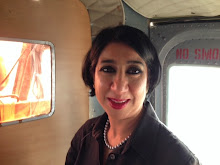The alleged dissatisfaction felt by the Bangladesh Rifles which manifested in a mutiny widely reported over the last few days is common to border areas around the North of the Sub-Continent where the different military wings vie for attention, resources and acknowledgement from their respective capitals, be they New Delhi or Dhaka. The need for a body count and point scoring means that there is often as much internal squabbling between soldiers from different factions in the same country as there is fighting cross border neighbours.
After two years of army-backed emergency rule in Bangladesh, the country has returned to democracy under Sheikh Hasina Wajed and the recent mutiny has been her first real test in office. She appears to have handled the situation. Despite the current problems, the election held just a couple of months ago was heralded as a watershed by analysts. There were many independent official observers in the country at that time, the biggest contingent coming from the US. A delegation from Britain was led by Baroness Uddin. After speaking at a post-election meeting in the House of Lords recently, Pola Uddin told me exclusively that many international observers had been present and were unanimous in their praise at the way in which the election had been conducted, with cooperation from all political parties, particularly opposition groups, having a voice both during and post-election.
‘This is a watershed election for Bangladesh, with her proud citizens coming out in their millions. People have given their verdict in a free and independent way. It was a privilege to be a witness to men and women participating in a democratic process which was peaceful. We should acknowledge that without the cooperation of the political parties and the leadership of the Election Commission such results would have been difficult to achieve. It is my wish that all parties will continue to work with the government to ensure that one day soon this fragile democracy will be an example to others; however it is only possible if all the political parties continue their cooperation beyond today. I hope that the international community will continue to support the government and the opposition parties in their ambition for a peaceful Bangladesh.” Baroness Uddin said.
“Bangladesh has been known for political violence and unrest. People have proved that they can go through an election. Politics back home always impacts on the diaspora. The Bangladeshi community can take pride because we have demonstrated that elections can change the face of the country; opposition groups are providing the maximum amount of support post-election. This is historic, (often opposition groups boycott parliament.) The Government has indicated that the deputy speaker and the chairs of scrutiny committees can be drawn from the opposition parties, emulating other, older democracies.” Britain’s first female Muslim peer also demonstrated that Bangladesh does not act in isolation.
“What happens in Bangladesh matters to India and China and what happens in the US matters to Bangladesh.” She added.
Monday 2 March 2009
Subscribe to:
Post Comments (Atom)


No comments:
Post a Comment